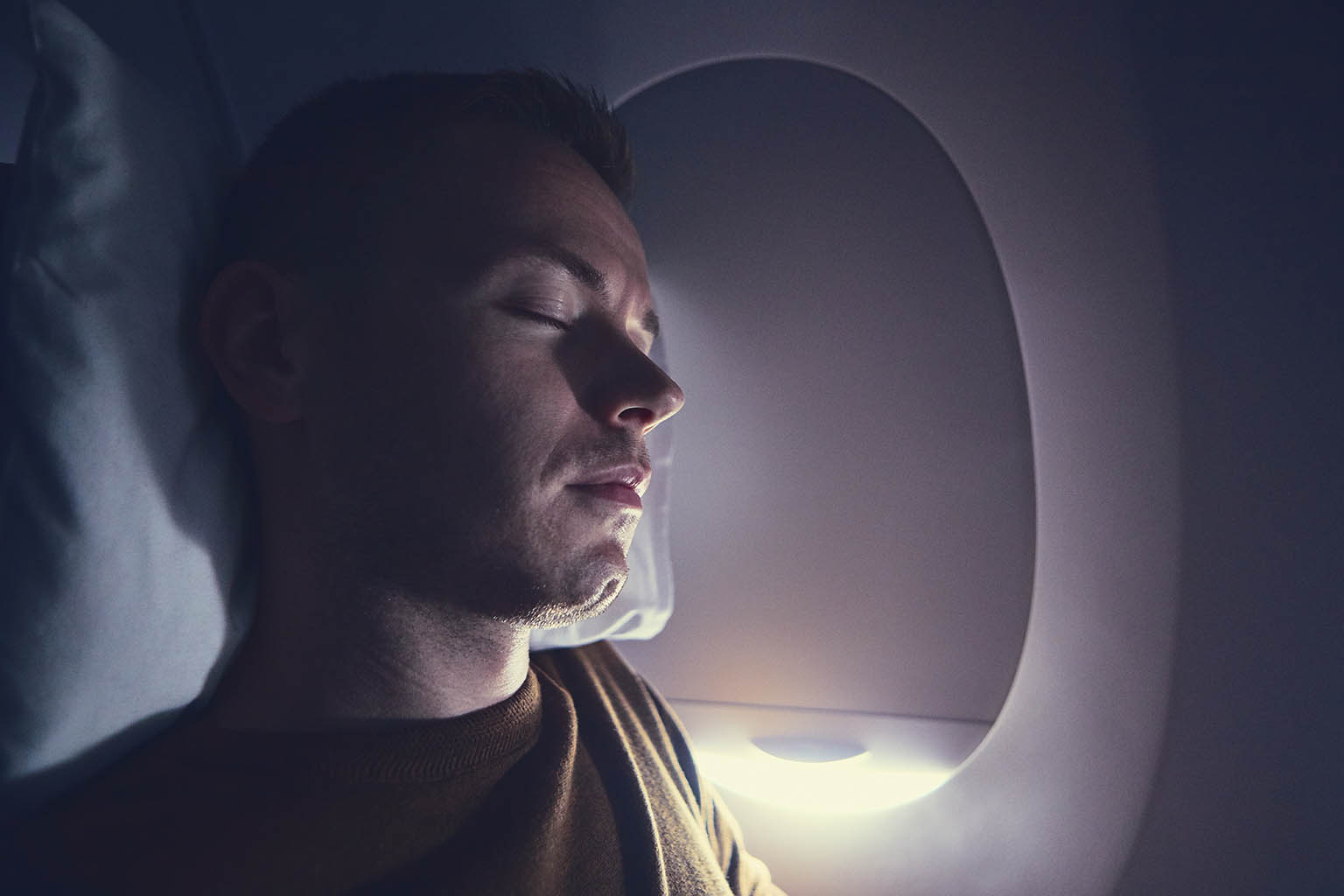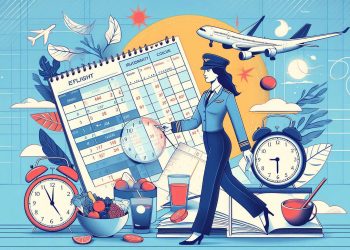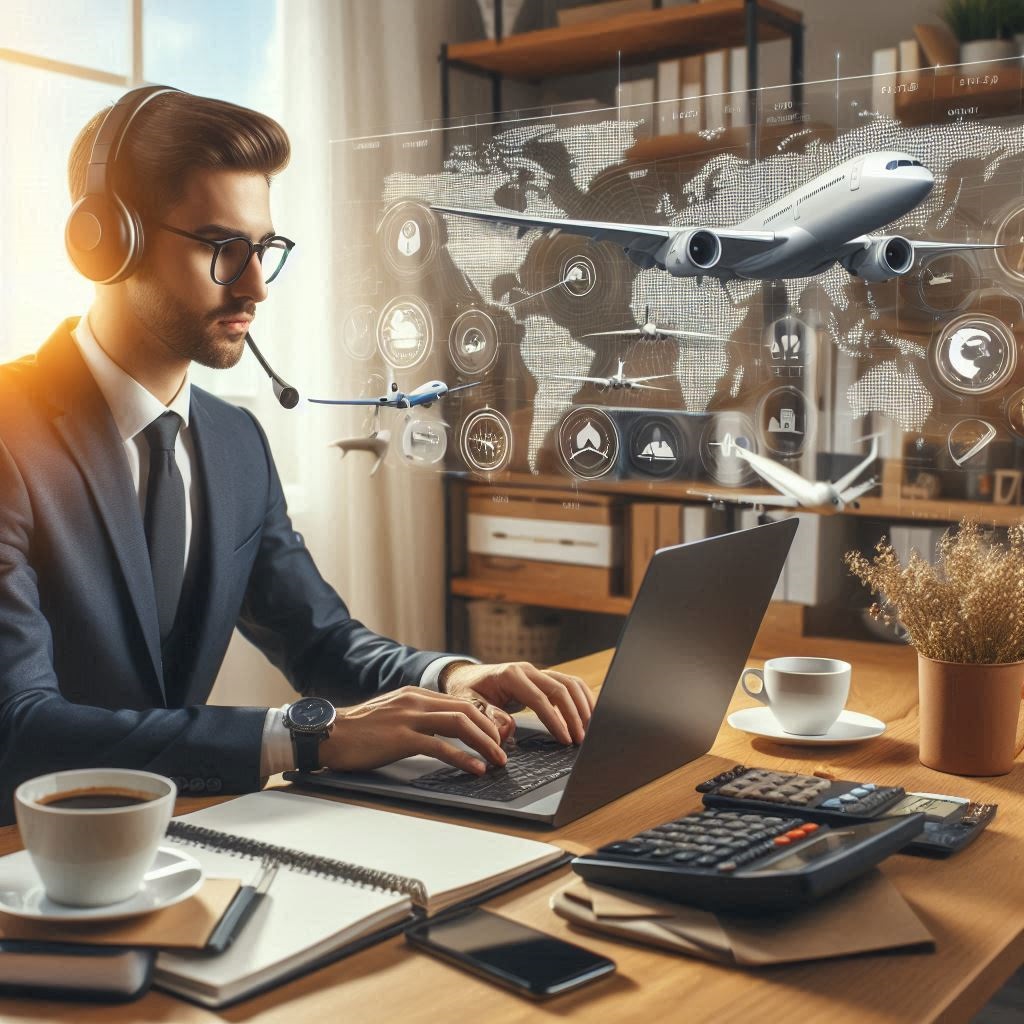The Science of Sleep: Tips for Pilots and Flight Attendants
Introduction
Sleep is an essential function that affects every aspect of human health, yet for aviation professionals, achieving quality rest can be challenging. Pilots and flight attendants often work irregular hours, cross multiple time zones, and face demanding schedules that disrupt the body’s natural sleep cycle. These disruptions can lead to sleep deprivation, fatigue, and long-term health concerns. Understanding the science of sleep and implementing strategies to improve sleep quality is critical for ensuring peak performance, safety, and overall well-being.
This article explores the biology behind sleep, the impact of disrupted sleep cycles on aviation professionals, and practical, science-backed tips for optimizing rest. If you’re a pilot or flight attendant struggling with irregular sleep patterns, these insights will help you improve your sleep hygiene and overall health.
Understanding the Science of Sleep
The human sleep cycle is regulated by the circadian rhythm, an internal biological clock influenced by external cues such as light and darkness. This 24-hour cycle dictates when we feel awake and when we become sleepy. For aviation professionals, irregular schedules and frequent time zone changes can throw off this rhythm, leading to circadian misalignment and sleep deprivation.
Sleep Stages and Their Importance
Sleep occurs in multiple stages, each playing a crucial role in mental and physical recovery:
- NREM Stage 1 – Light sleep; transition from wakefulness.
- NREM Stage 2 – Deeper sleep; memory consolidation begins.
- NREM Stage 3 – Deep sleep; essential for physical repair and immune function.
- REM Sleep – Dreaming stage; critical for cognitive function and emotional regulation.
For aviation professionals, missing out on deep sleep and REM sleep can lead to cognitive decline, decreased reaction time, and increased stress levels. Ensuring a full sleep cycle is completed is vital for optimal performance and safety in the aviation industry.
The Impact of Sleep Deprivation on Aviation Professionals
Pilots and flight attendants often experience sleep debt, a cumulative effect of insufficient sleep over time. Chronic sleep deprivation can have serious consequences, including:
- Reduced Cognitive Function: Slower reaction times and impaired decision-making skills can compromise flight safety.
- Increased Fatigue: Constant exhaustion can lead to burnout and decreased work performance.
- Weakened Immune System: A lack of quality sleep makes the body more susceptible to illnesses.
- Mental Health Challenges: Sleep deprivation increases the risk of anxiety, depression, and mood swings.
- Increased Risk of Chronic Diseases: Poor sleep is linked to obesity, cardiovascular disease, and diabetes.
Given these risks, aviation professionals must prioritize sleep as part of their overall health and wellness strategy.
Tips for Improving Sleep for Pilots and Flight Attendants
- Prioritize Sleep Hygiene
Sleep hygiene refers to the habits and environment that promote quality sleep. Here are some effective strategies:
- Create a Consistent Sleep Routine: Try to sleep and wake up at the same time every day, even on days off.
- Optimize Your Sleep Environment: Use blackout curtains, a white noise machine, and a comfortable mattress and pillows to create an ideal sleep setting.
- Limit Blue Light Exposure: Reduce screen time before bed, as blue light from phones and tablets can interfere with melatonin production.
- Avoid Caffeine and Alcohol Before Bed: These substances can disrupt your sleep cycle and prevent deep rest.
- Manage Jet Lag Effectively
Jet lag occurs when your internal body clock is out of sync with a new time zone. Here’s how to minimize its effects:
- Gradually Adjust to New Time Zones: Shift your sleep schedule a few days before departure to match your destination’s time zone.
- Use Natural Light Exposure: Exposure to sunlight during the day helps reset your circadian rhythm.
- Consider Melatonin Supplements: Melatonin can help regulate sleep patterns but should be used under medical guidance.
- Stay Hydrated: Dehydration worsens fatigue and jet lag symptoms, so drink plenty of water.
- Take Strategic Naps
Napping can be a powerful tool for restoring alertness and reducing fatigue, but it must be done correctly:
- Short Naps (10-20 Minutes): Ideal for a quick energy boost without grogginess.
- Longer Naps (60-90 Minutes): Allow for a full sleep cycle, which can be beneficial if sleep debt is high.
- Avoid Napping Too Close to Bedtime: This can interfere with your ability to fall asleep at night.
- Eat for Better Sleep
Your diet can significantly impact your sleep quality. Consider these nutrition tips:
- Eat Sleep-Friendly Foods: Foods rich in magnesium (bananas, almonds) and tryptophan (turkey, dairy) can promote relaxation.
- Avoid Heavy Meals Before Bed: Large meals can cause discomfort and disrupt sleep.
- Limit Sugar Intake: High sugar consumption can lead to energy crashes and restless sleep.
- Exercise Regularly
Physical activity promotes better sleep by reducing stress and regulating hormones. For aviation professionals, incorporating movement into a hectic schedule is key:
- Engage in Moderate Exercise: Activities like walking, yoga, or resistance training help improve sleep quality.
- Avoid Intense Workouts Before Bed: High-intensity exercise can increase alertness and make it harder to fall asleep.
- Stretch Before Sleeping: Gentle stretching can promote relaxation and reduce muscle tension after long flights.
- Practice Stress Management Techniques
Stress and anxiety are common among aviation professionals and can significantly impact sleep quality. Consider these relaxation methods:
- Deep Breathing Exercises: Techniques like the 4-7-8 breathing method can help induce relaxation.
- Meditation and Mindfulness: Practicing mindfulness can reduce stress and improve sleep quality.
- Progressive Muscle Relaxation: A technique that involves tensing and then relaxing muscle groups to promote relaxation.
- Use Sleep Aids Wisely
While sleeping pills and aids can provide temporary relief, they should not be relied on as a long-term solution.
- Consult a Doctor: If sleep disturbances persist, seek medical advice for underlying health concerns.
- Opt for Natural Remedies: Herbal teas, essential oils, and relaxation techniques can aid sleep without side effects.
- Limit Sleep Medication Use: Prolonged use can lead to dependency and disrupt natural sleep patterns.
Conclusion
For pilots and flight attendants, achieving quality sleep is not just about personal well-being but also about maintaining optimal job performance and ensuring aviation safety. Understanding the science of sleep and implementing practical strategies can significantly improve rest quality, reduce fatigue, and enhance overall health.
By prioritizing sleep hygiene, managing jet lag, taking strategic naps, maintaining a balanced diet, exercising regularly, and practicing stress management techniques, aviation professionals can overcome the challenges of irregular sleep schedules. Making sleep a priority is not a luxury—it’s a necessity for those who navigate the skies every day.
If you’re an aviation professional struggling with sleep, start implementing these strategies today and experience the benefits of well-rested, healthier living both in the air and on the ground.






